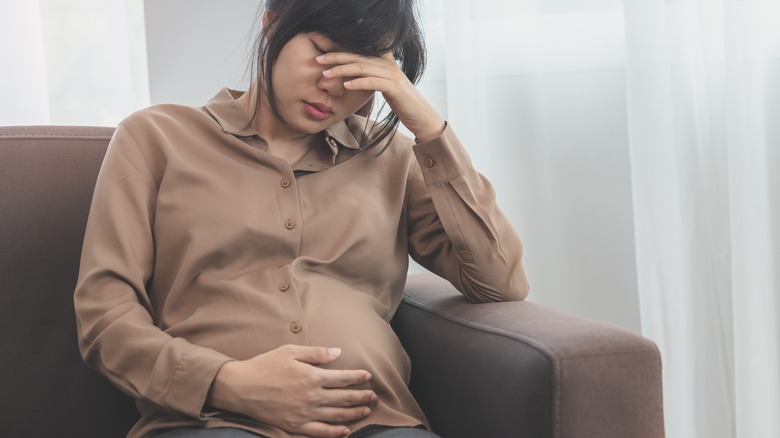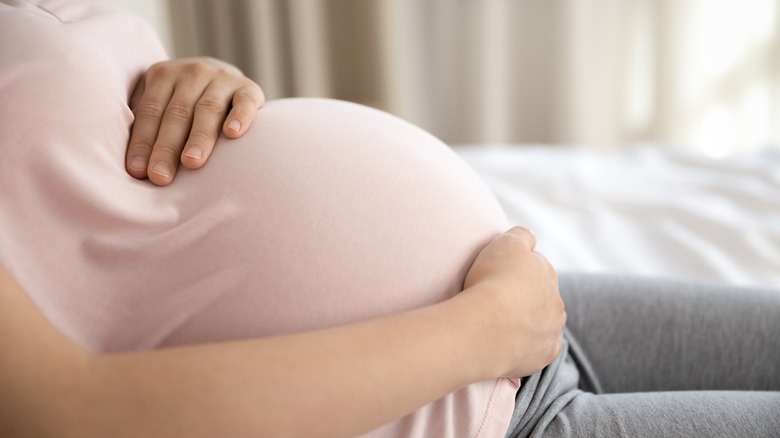How Stress During Pregnancy Could Affect Your Child's Toddler Years
We all feel stressed at one time or another, whether it's because of an issue at work, an overdue credit card bill, or a relationship problem. Stress can creep into our lives at any point in time, but this is all the more true when you are pregnant. It's not unusual to feel a certain amount of stress during pregnancy. After all, you're dealing with major bodily changes, doctor appointments, unpredictable variations in hormone levels, a long list of things to do and get for your baby, and the huge responsibility that comes with bringing a new life into the world.
While a certain amount of stress during pregnancy is to be expected, it can be dangerous for both you and your baby when your stress levels become extreme. As the National Institutes of Health explains, experiencing extreme stress during pregnancy can be dangerous, as it can cause unhealthy changes in your appetite, poor sleep, and high blood pressure, all of which can negatively affect the health of your unborn baby and cause significant complications. One of these complications, a new study has found, may lead to problems with your baby's brain development.
Pregnancy stress may cause issues with baby's brain development
A new study has found that chronic stress during pregnancy may negatively impact your baby's brain, leading to development issues down the road. The 2022 study, published in JAMA Network Open, examined 97 women and their unborn babies. Between the 24th and 40th week of pregnancy, the mothers reported their stress levels. At 18 months of age, the babies' neurodevelopmental levels were tested.
Results of the study showed that the children of mothers who reported elevated levels of stress while pregnant were negatively impacted in terms of their cognitive functioning and emotional control versus the children whose mothers did not experience high levels of stress (via US News & World Report).
The exact reasons why maternal stress has such an impact on the brain development of unborn babies is not clear, but researchers suggest that the effects of the stress hormones within the mother's system may cross into the placenta, thereby affecting the baby. "Stress increases the activity of the maternal endocrine and immune systems, which can launch a maternal stress response, which, in turn, may affect placental function, blood flow or inflammatory activity while pregnant," Catherine Limperopoulos, study author and director of the Developing Brain Institute at Children's National Hospital, told US News & World Report.


